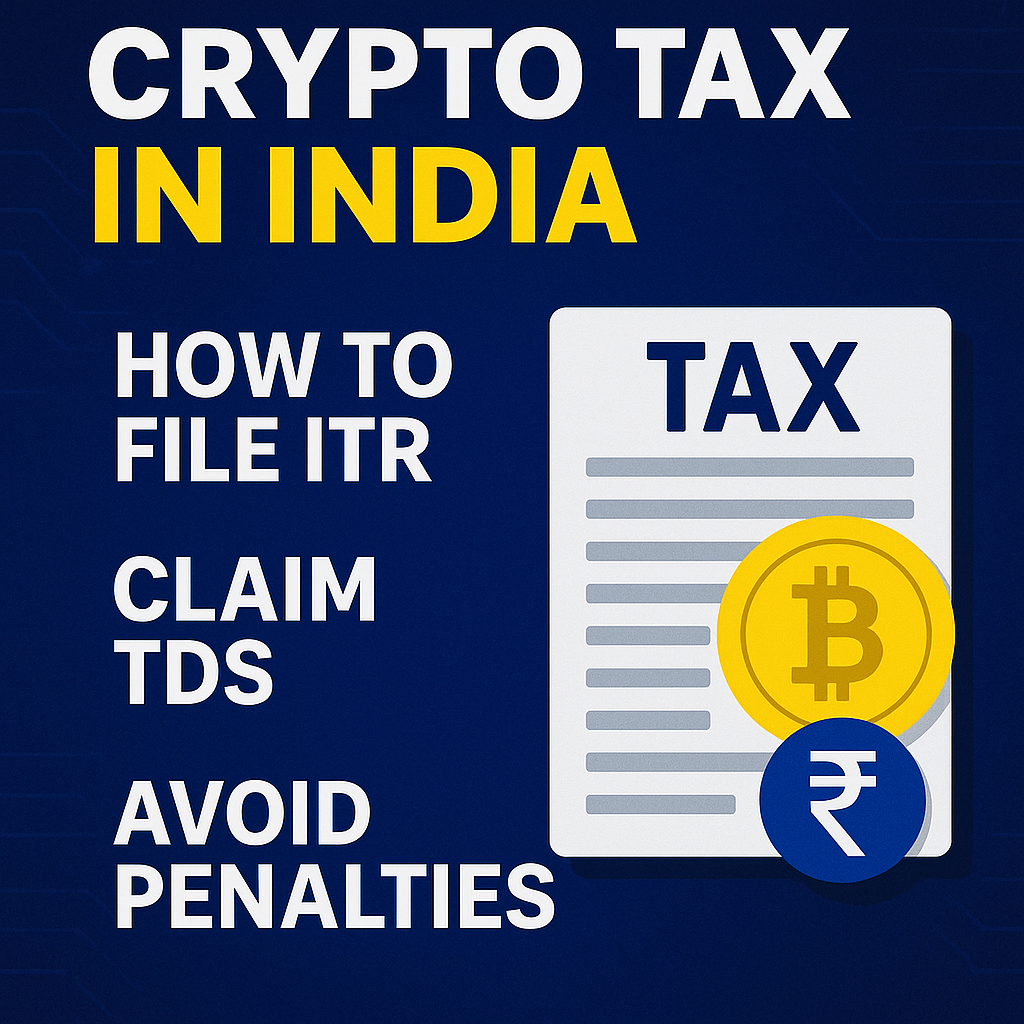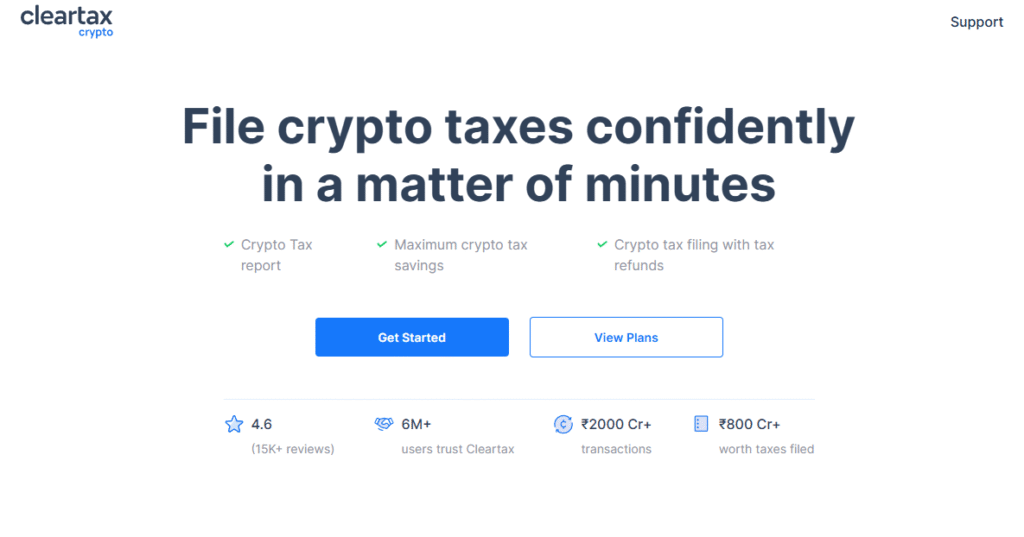Crypto Tax in India 2025: How to File ITR, Claim TDS & Avoid Penalties on Digital Assets

Introduction
Cryptocurrency trading in India has moved beyond a niche activity and into the mainstream. Whether you are investing in Bitcoin, trading Ethereum futures, or speculating on altcoins, you now fall under strict tax regulations on Virtual Digital Assets (VDA) as per the Income Tax Act – Crypto tax in India 2025.
In 2025, the Indian tax department continues to enforce 1% TDS on crypto trades and a flat 30% tax on profits, with very specific filing requirements. Failure to comply could lead to penalties, interest, and scrutiny from the Income Tax Department.
1. Understanding Crypto Tax in India
The Finance Act 2022 introduced taxation rules for cryptocurrencies and other VDAs, which remain effective in 2025:
- Flat 30% tax on profits from selling crypto (spot or derivatives)
- 1% TDS on every transaction (buy/sell) above ₹50,000 annually (₹10,000 for specified persons)
- No set-off of losses from crypto trades against any other income
- No deductions allowed other than cost of acquisition
These rules apply regardless of holding period — meaning crypto is taxed like speculative income, not capital gains.
2. Taxation on Crypto Derivatives
Crypto derivatives such as futures, perpetual contracts, and options have slightly different considerations:
- Profits from crypto derivatives are taxed under business income if trading is frequent and organized, otherwise as VDA income.
- TDS at 1% still applies to notional settlement values on exchanges.
- If treated as business income, expenses related to trading (brokerage, internet, electricity for mining rigs, etc.) can be deducted.
3. TDS on Crypto – What You Can Claim Back
TDS (Tax Deducted at Source) is deducted by the exchange at the time of trade.
Example:
If you sell crypto worth ₹1,00,000, the exchange deducts ₹1,000 (1% TDS) and transfers ₹99,000 to you.
You can claim this TDS as a credit when filing your ITR. If your total annual tax liability is less than the TDS paid, you can get a refund.
4. Which ITR to File for Crypto Income
The correct ITR form depends on how you classify your crypto activity:
- ITR-2 → If you are an investor, reporting crypto income as “Capital Gains on VDAs”
- ITR-3 → If you are a trader, reporting crypto income as “Business or Professional Income”
- ITR-4 → If eligible under presumptive taxation (rare for crypto, mostly for small traders)
5. How to File Crypto Income in India
Step-by-Step Process
- Collect Transaction Reports from all exchanges (WazirX, CoinDCX, Binance, etc.)
- Calculate Profits and Losses for each trade — remember, losses can’t be set off against other income.
- Calculate TDS Paid from Form 26AS (available on the Income Tax portal).
- Choose the Right ITR Form based on your activity.
- Report VDA Income under the ‘Schedule VDA’ in the ITR form.
- Claim TDS Credit in the tax paid section.
- Pay Remaining Tax if liability > TDS paid.
- Submit and Verify your ITR before the due date (usually July 31 for individuals).
6. Key Compliance Tips for Crypto Investors
- Always use SEBI-compliant or RBI-monitored exchanges when possible.
- Keep separate records for spot and derivatives trades.
- Track international exchange activity — foreign trades are also taxable in India.
- Don’t ignore TDS deductions — claiming them reduces tax liability.
- File ITR on time to avoid penalties up to ₹5,000.
NOTE: Cleartax gives an option to file ITR for crypto investments in easy self filing way, where you can just upload the excel file and it will calculate the tax and rebate automatically.
Conclusion
Crypto tax in India 2025 – Cryptocurrency taxation in India is not as complicated as it appears — but it demands accuracy and timely filing. Whether you’re investing for the long term or actively trading derivatives, staying compliant ensures you keep your profits without trouble from the tax department.
By understanding TDS rules, choosing the right ITR form, and maintaining transaction records, you can navigate India’s crypto tax laws efficiently in 2025.
#CryptoTaxIndia #CryptoTDS #ITRFilingCrypto #DigitalAssetsTax #CryptoDerivatives #CryptoRegulationsIndia #CryptoInvestingIndia





